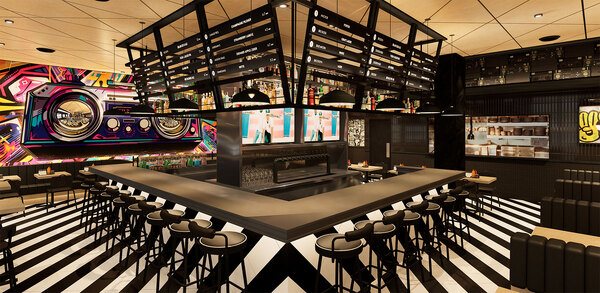‘The most exciting chapter is still to come’
AI is transforming hospitality operations with tools to communicate with customers, collect data and help adapt to fluctuation, says Jordan Foord
Artificial intelligence (AI) is reshaping the landscape of the hospitality industry, driving innovation and pointing to new opportunities. It has the potential to bolster resilience for the industry as a whole and we’ve barely scratched the surface of the potential impact.
Up until this point, there have been incremental improvements in the shape of chattier chatbots recommending menu items and the integration of booking systems with ChatGPT, but I firmly believe the most exciting chapter is still to come. Information is collected and stored on revenue, reservations, past performance, stock levels and kitchen output. And this generates a whole power of data which means that as an industry we are able to move to making more data-based decisions. It’s less about instinct and more about having the evidence base for confident and informed choices.
Using artificial intelligence, operators can combine and analyse data points and be presented with finished staff rosters, turnover forecasts, optimised stock order and even the ideal dining area configurations. All of this is achieved with a fraction of the effort and man-hours traditionally needed to produce these essential reports.
An AI system with access to aggregate insights across groups can use this information to automate communications and promotions to customer lists. It can send personalised messages to diners based on their dining history, written reviews and guest notes. This could potentially increase the bandwidth for marketers to focus on other creative outputs for their brands.
Hospitality operators are also becoming increasingly aware of the power of data in helping to personalise their customer experience with more tailored communications, menus, reward incentives and special offers.
These insights are readily available, from a customer’s booking history and dining frequency, to what they order, their average spend, as well as technologies like facial recognition.
For example, it’s not difficult to imagine a very near future where a front of house manager knows everything about a customer before they get as far as the front desk. Everything would be presented immediately with their dining history and preferences, with insights into the service experiences that will delight them.
It also caters well to the increasing emphasis on accessibility. AI has the potential to remove communication barriers with real time translation, dynamic accessibility services like image-to-text descriptions for the sight-impaired and speech generation for the hearing-impaired, and all without employing any additional specialist services.
The caveat of course comes around the increased implications from data processing and security. The prospect of leveraging facial recognition for a seamless guest experience may be intriguing, but it also poses ethical and legal concerns. As the industry advances, there is a need to develop a robust ethical framework to govern the responsible use of such technologies. We have to find the balance between knowing enough about a guest to offer a second-to-none service experience, and knowing so much that it causes privacy concerns for these individuals.
However, this is a really exciting time to be part of this sector. As the rapidly growing adoption of hospitality technology continues, it also accelerates the development of new features and opportunities to incorporate AI. We’re moving towards a low or no friction user experience – for both guests and operators.
Guests benefit from an enhanced experience, with service that is immaculate, natural and precise. And for the operator, the background support frees them up to spot the opportunities. Or even point them towards those opportunities. Artificial intelligence can help venues anticipate and adapt to market fluctuations, equipping them to handle unforeseen challenges and disruptions better – or even recommend against new ventures that combined market data predicts will not succeed.
It’s a rapidly evolving landscape in hospitality technology and staying ahead of these trends will position venues and operators to capitalise on the next wave of technological innovation with AI.
Jordan Foord, chief product officer for ResDiary and Dish Cult


















